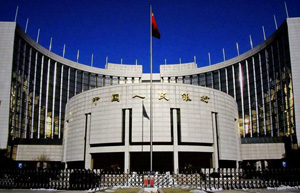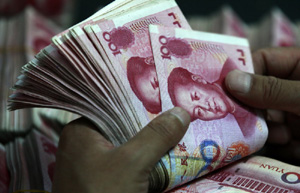Since late January, the central bank has ensured ample liquidity in the banking system. In March, regulators established a relending program of 50 billion yuan ($8 billion) to support financing for micro and small enterprises.
In April, the government announced a 200 basis point reserve ratio cut for county-level rural commercial banks and one of 50 bps for rural cooperatives.
Lenders were also told to prioritize mortgage lending and charge reasonable rates and quicken loan approvals in May.
"In our view, cutting interest rates would be a better policy than broad-based reserve ratio cuts, given the high leverage in the economy and weak demand on the one hand, and ample liquidity and unresolved implicit guarantees and 'moral hazard' on the other.
"Although lending rates have been liberalized, a symmetric cut to both deposit and lending rates should transmit to the real economy," said Jian Chang, an economist and analyst with Barclays Research in a note.
Other data have also shown that China's lending tensions have eased.
"Our China credit impulse estimate held steady at around 28 percent of GDP last month. May's pickup in yuan-denominated lending and M2 growth, together with low interbank rates and declining marginal borrowing costs, suggests that liquidity and credit conditions have been easing," said Wang Tao, chief China economist with UBS AG.
However, some sectors have still experienced financial stresses. Analysts warned that risks may emerge in the future.
According to Kai Hu, a Moody's Investors Service Inc vice-president and senior credit officer, tight credit conditions are creating financial stresses for certain sectors such as steel, mining and property, and especially for smaller, private enterprises.
In the property sector, for example, "we note that developers are facing significant slowing sales growth, rising inventory levels, and weakening liquidity," said Hu.
Jimmy Leung, PricewaterhouseCoopers LLP"s China banking and capital market leader, said lenders need to watch nonperforming loans, which may increase in 2014 amid slowed economic growth and transforming and upgrading in some sectors.
Lenders need to strengthen their risk and liquidity management, said Leung.
Staff at lenders said they have not shaken off the pressure of securing enough deposits to let their employers to lend as much as possible and meet regulators' requirements regarding loan-deposit ratios and reserve ratios.
"Liquidity management is a long-term task. After June 30, there will be December 30 and June 30, 2015. The exams never end, and the pressure lingers," said Lu, the wealth manager in Shanghai.
|
 |
 |
| More lenders make RRR cuts | Money market funds must come under controls |
